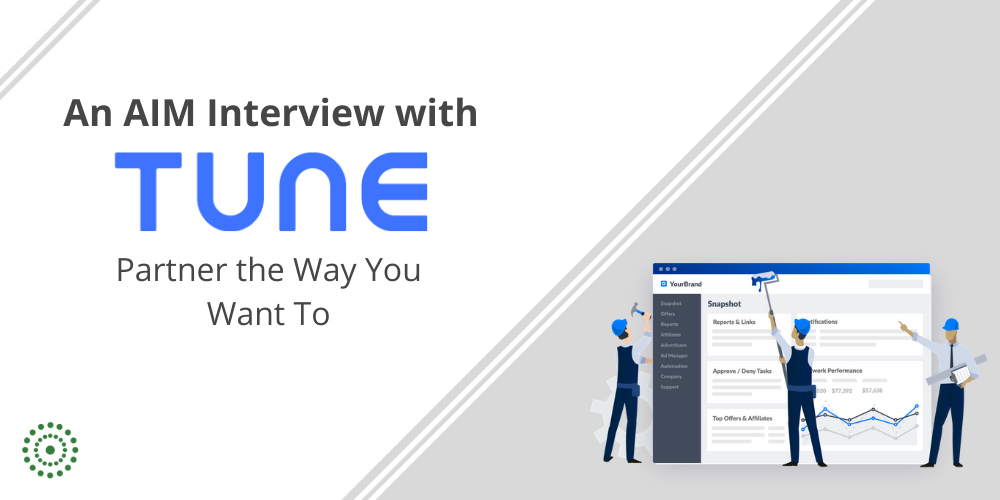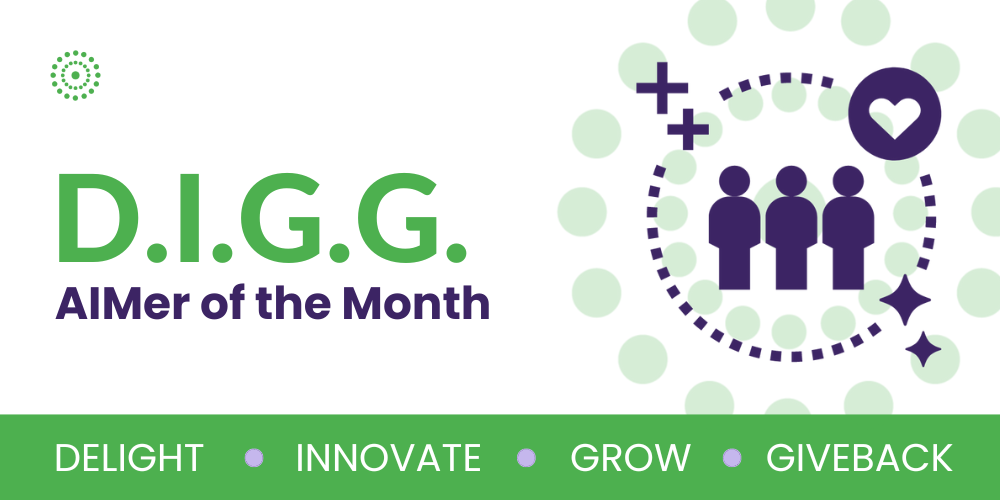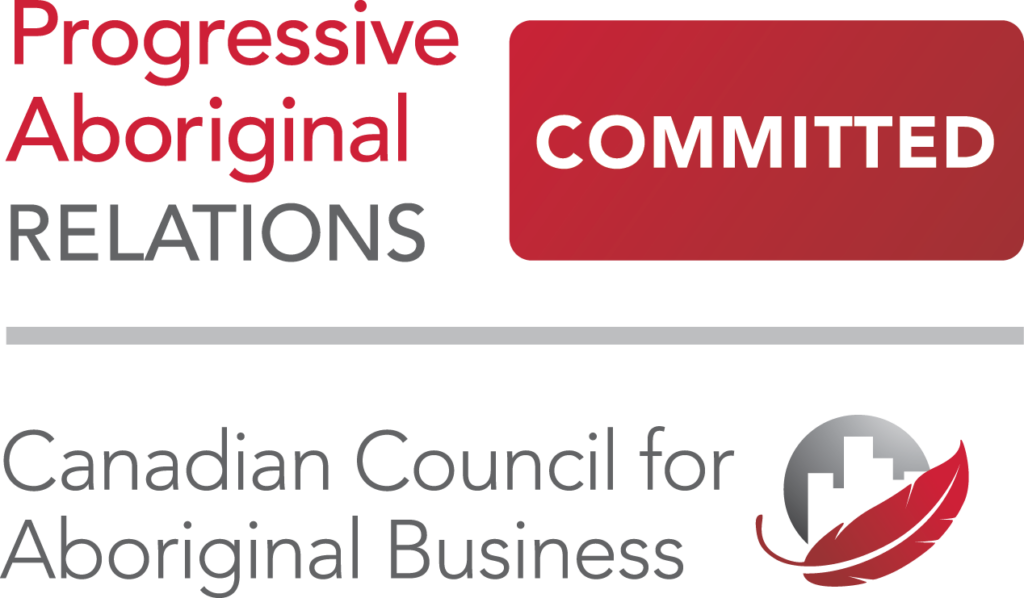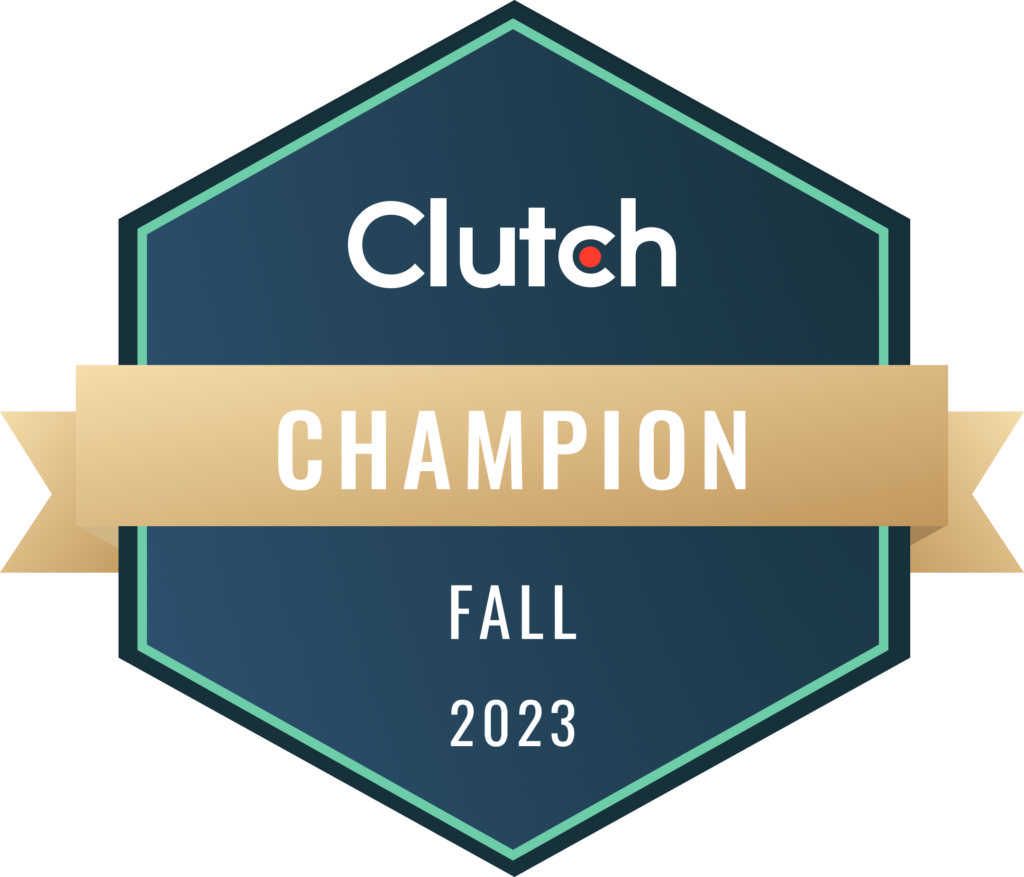Recently, we had the pleasure to sit down with Cameron Stewart, the GM at TUNE to talk about performance marketing.
At TUNE, they support the growth of every performance partnership that marketers and their teams want to manage. In the past few years, affiliate marketing has expanded and evolved into a larger category called partner marketing.
They believe that every business can benefit from better technology to manage marketing partnerships, and believe this need extends beyond advertisers and affiliate programs. Ad networks, agencies, and publisher businesses are also managing partnerships at scale. TUNE’s partner marketing platform is designed to support the unique needs of these business models and make it easier for each to work with the others.
Read on to learn more about TUNE, how new ownership is paving the way for new opportunities, and how COVID has changed partner marketing forever.
Q: Great to have you on the AIM Blog. Tell us a bit about your love affair with performance marketing. What is your quick history, and what makes this ecosystem so special?
I actually stumbled upon performance marketing in 2008. Back then, I was looking to become part of the tech startup community in Seattle. I joined the two co-founders, who were building their own platform to manage affiliate marketing relationships and had decided to turn it into SaaS. My original job was to recruit and grow the engineering team to build the platform faster. Once we shifted to a SaaS model, we needed someone to sell the product, so I stepped into the commercial side of the business.
It was a really easy product to sell, first and foremost, because we weren’t charging anything for it. At the same time, that opened the doors for a ton of feedback and rapid iteration, as we were at an earlier stage than most products would have gone to market. That introduced me to one of the most intriguing artifacts of affiliate marketing — the entrepreneurial spirit behind the entire industry. I also loved the collaborative nature of the partnerships that fuel the industry, which is where the “partner marketing” concept comes from: people rely on each other, through introductions and different content and mediums, to help achieve each other’s goals.
That aspect has always intrigued me. People are constantly thinking of new innovations: ways to drive promotions, to scale their programs, to improve their profit margins. Performance marketing is a very economical way of thinking that also requires a heavy investment in relationship development. The intersection of those two skills is what has interested me and kept me around.
Q: How has technology helped to evolve business development into partner marketing? What’s that new angle that technology brings to the table?
Part of it is the ability to manage scale more easily, both through discovery and finding new partners, but also in terms of managing and communicating and optimizing those relationships. Everybody has KPIs or objectives they’re trying to hit with their partnerships. Attempting to do and measure that across a couple dozen partners is difficult unless you have a dashboard telling you that things are heading the right direction or the wrong direction, or are in the strike zone or in a danger zone.
Q: Congrats on your most recent sale to Constellation Software Inc. Who are they, and why now?
Constellation Software is the second-largest software company based in Canada. They like to consider themselves “the biggest software company that one’s ever heard of,” because they’re in the business of buying and holding on to companies without the intention of ever selling them. Over the years and through all of their different acquisitions, they’ve really excelled at introducing best practices into how software businesses are operating.
So why did TUNE join Constellation, and also, interestingly enough, CAKE? One, I think there’s a level of maturity the industry is approaching in both affiliate marketing and partner marketing, so it’s natural for some level of consolidation to occur. Two, we’ve been talking to CAKE for a few years now (both as rivals and potential partners) about what it would mean to join forces, to make sure the two leaders in the space can work closely together to establish best practices, best product, and learnings we’ve had through successes and challenges over the years.
So when you couple our industry experience with Constellation’s best practices on how to run software companies, it really is a perfect melding of minds. Our plan is to come out on the other side with both companies being stronger and to continue to add other like-minded digital marketing and related technologies to the family. That gives us two things: the ability to cast a wider net across performance and digital marketing, and the opportunity to bring in complementary tools that have already seen success in the market and cross-sell them across our businesses.
Q: Given Constellation’s penchant for acquiring software companies, do you anticipate TUNE acquiring additional performance marketing capabilities in the near future? If so, do tell us more …
We’re not at liberty to talk about any conversations that are in motion, because nothing’s a done deal. But the conversations are happening.
Q: Under new ownership, what is TUNE’s biggest opportunity?
Our vision is: to remain as a SaaS player in an industry, as an open platform offering our clients and partners the access choice and control. We know this won’t be the right model for everyone in the performance marketing ecosystem, like brands that need heavy advisory services and offerings along those lines. From our perspective, this is where our partnership strategy will be central. That means continuing to work with agencies like AIM, continuing to work with other networks, and not closing ourselves off to those types of relationships — these are our partners in this space, and we need to continue to drive them.
Q: What is missing from the performance space today?
A good starting point is trying to get everybody to use the same language, and using technology as a language. Take the millions of advertisers and publishers out there, and all of the service providers that help connect them — there’s a fundamental language that needs to be spoken across all of them, whether that’s CPM, CPC, CPS, CPA, CPI, or CP___.
I see technology as a vehicle to help the translation. And that’s something we continue to want to be. We want to make “integration” not a cringe-worthy concept, but an opportunistic one. Make “discovery” of relationships trustworthy and responsive, but not overloading or overbearing. We’ll attempt to do that through tech, but also that through partners who specialize in these areas.
Q: Today, what is TUNE’s biggest challenge?
TUNE’s biggest challenge right now is also its biggest opportunity, which is expanding the types of clients we work with. For years, under the HasOffers name, we were perceived as (and for the most part were) addressing networks and mobile supply in the space. But at the same time, a significant amount of platform usage was coming from affiliates, advertisers, and direct publishers, and that usage kept growing organically.
So we’re focusing on how we can continue to broaden our audience, which comes back to being a connection point for the ecosystem — that layer of translation across different channels, and geos, and goals.
Q: What is your proudest moment at TUNE and why?
I don’t know if it’s a moment, but I feel an immense amount of pride whenever I hear from a customer that we helped them achieve their goals. That goes back to Month One when users were taking a rudimentary platform and saying, “Wow, it’s doing something I wasn’t able to do before.” Today, I love seeing new advertisers or their agency get up and running, and when they express their appreciation for how TUNE is equipping them to do business the way they envisioned. Because we provide so much flexibility around our tools and APIs, clients might not get the ability to customize their program via a competitor or by going with a direct network. So I get a lot of pride — and I feel like this stitches us together across our organization — when someone sees TUNE as a means to an end that they weren’t able to find on another path.
Q: During COVID, how has TUNE changed the most?
One of the biggest changes is we’ve lost our human interaction with each other on a day-to-day basis in the office. But at the same time, we’re a global company. We’ve had to partner with our teams in other parts of the world by digital means for years, so if anything the HQ is experiencing some of those challenges as our remote offices.
I think the current situation has given a lot of our employees the ability to look at things differently, knowing there are going to be challenges that require new and creative solutions. We have tried new methods of promotion like giving the product away for free for a period of time to help people try performance marketing, knowing it should be a profitable endeavor. It’s rewarding to be able to put together programs that address the challenges customers and markets are facing, to be there as a lifeline for them. We can’t necessarily do everything for free, but we do believe if people can get integrated and launch, performance marketing will be a great channel for them in the long run.
Q: How has COVID changed Partner marketing forever?
It’s definitely put a heightened emphasis on it.
For example, brick-and-mortar retailers are faced with some serious challenges — we’ve seen a lot of huge brands go bankrupt in a short order of time. When you think about partner marketing, it’s really about positioning the right partner’s product or service at the right point in time. Right now as consumers, we are going through different life situations. Whether it’s homeschooling our children, transitioning from a travel-centric lifestyle to being at home, or coming to grips with our hobbies and social life have completely changed. There are new products and services coming to market that are helping to connect the dots of the current norm. This is providing new opportunities in Partner marketing and how those companies spin up supply channels. Amidst all of the uncertainty and changes, there are great opportunities and success stories being made.
We hope this interview has provided some insights into partner marketing and its current state. If you’re interested in learning more about TUNE, you can email them directly at partnermarketing@tune.com. Also, don’t forget to talk to an expert at AIM for more insight and amazing partnership opportunities.
